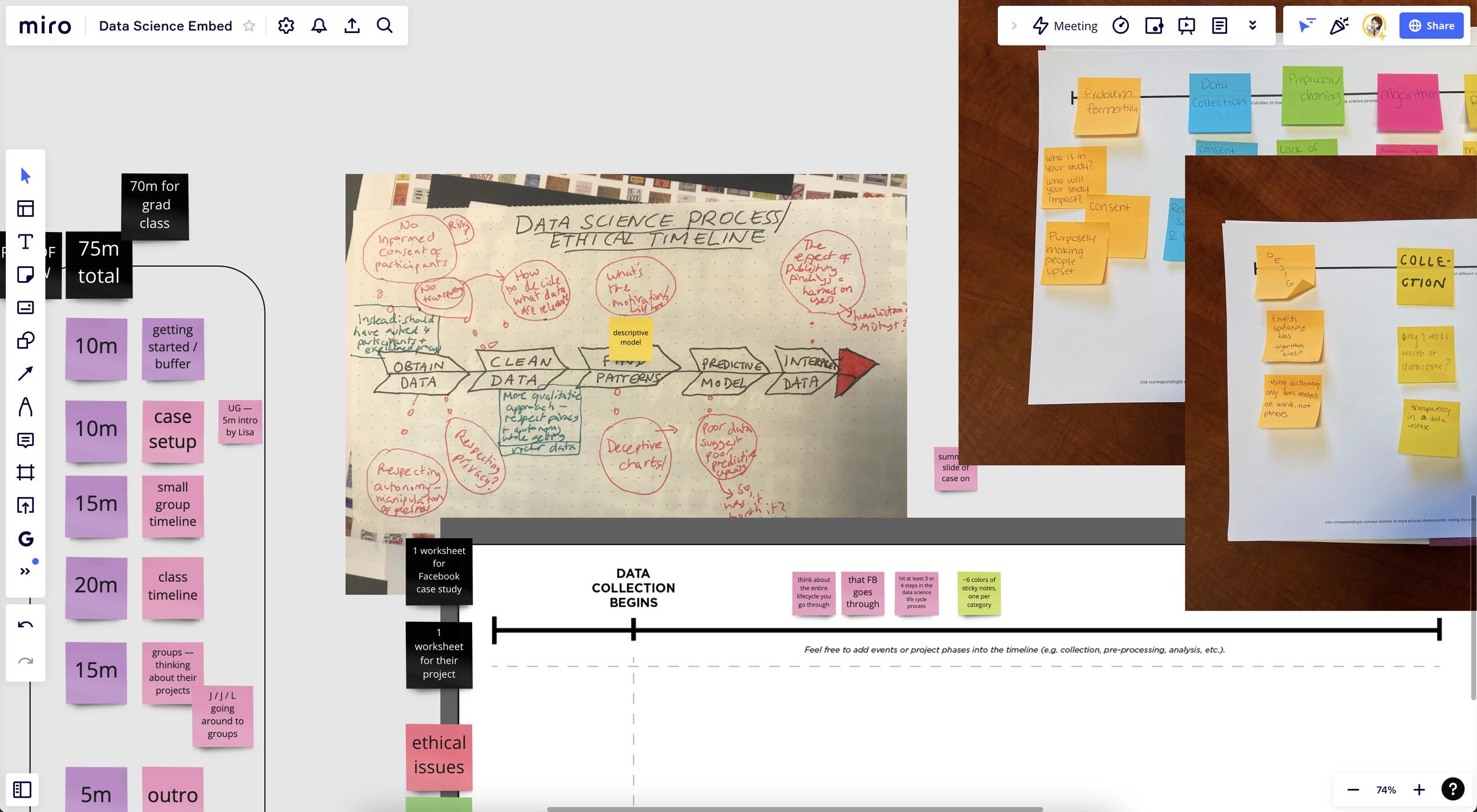From “just” data scientists to data scientists for justice: Ethics Lab empowers students to take an ethics driven approach to data science
Ethics Lab Fellow Dr. Lisa Singh, a Professor in the Department of Computer Science, worked with the Ethics Lab team to design and facilitate an exercise for undergraduate and graduate students in Singh’s Introduction to Data Science (COSC-287) and Data Analytics (COSC-587) courses.
“There is a tendency in Silicon Valley to look at technology as just a tool which serves as a solution to a problem…. In these embedded ethics exercises we are helping students come to the realization that whether they are programming or doing data science there are values embedded in each choice they make, and to seriously consider how they would like to shape those values,” commented Ethics Lab Postdoctoral Fellow Jason Farr.
To kick off the exercise, Farr and Ethics Lab Postdoctoral Fellow Joel de Lara began with discussion of observed assumptions about responsibility within the field of data science, including the assumptions that data science is objective and that it’s other people’s role to worry about potential harms. They noted the difference between malevolent intent and unintentional impacts on different stakeholders; conceptions of ethical harms to individuals, groups, and society; and the fact that there are not settled norms for all areas of research.
One such area is social media research. The undergraduate class looked at Facebook's 2014 emotional contagion study, in which researchers manipulated users’ newsfeeds to determine whether seeing more “positive” content would lead to posting more positive content (and the same for “negative” content). During the exercise students created a timeline for the study specifying the ethical questions and considerations at each stage of the project that Facebook would have had to navigate.
Some of the issues surfaced in group discussions touched on the difference between institutional review board (IRB) policies and Facebook’s data use policy; questions of consent; accuracy and bias related to varying language skills/use and the researchers’ inferences; and misleading visualizations.
For the graduate course, students went one step further by going through a similar exercise with their own data science projects. They considered the potential ethical consequences of the decisions they had already made, and anticipated those of decisions to be made at future stages.
One student project explored access to broadband, comparing the inequities in access between different demographics, including those living in rural areas and cities. During the exercise, the group shared the ethical significance of having broadband access and the limitations to opportunities individuals might have if they do not have such access.
On Ethics Lab’s collaboration with Singh, de Lara commented, “She has been incorporating ethical questions and issues throughout the courses — which is what we are advocating for professors to do university wide. We want educators to not think of ethical questions or issues as a ‘nice to have,’ but to weave such considerations in any data science course they teach.”
“Ethics is not its own separate self-discipline. You find ethical issues and questions across different disciplines. With the exposure of technology and the range of ethical issues that are coming out of new forms of technology, I think it is super important to embed ethics throughout the courses,” de Lara added.

